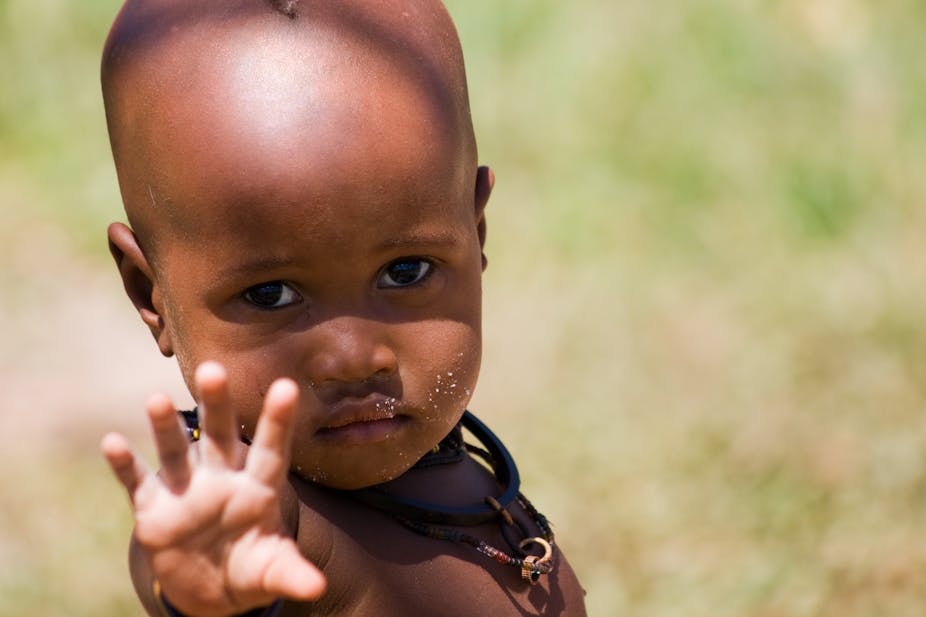Growing up in safe, secure and loving environments is a right of all children and imperative for their development. And families are widely considered as the best contexts for the provision of child care.
This is true for all children. But the most vulnerable are those who have lost parental care. The past decade has seen the introduction of many policies and initiatives aimed at preventing children from being separated from their families. There has also been a shift from the provision of institutional to family-based alternative care for children who have lost their parents.
Millions of children in sub-Saharan Africa experience inadequate care. In 2015 approximately 52 million children in the region were estimated to be orphaned. Loss of parental care, low-quality care and poor well-being is more likely to occur in families living in poverty. Between 2010 and 2012, 60% of children in the region were estimated to live on less than US$1.25 per day, while two-thirds under the age of 18 were estimated to be deprived in at least two areas of well-being.
This often interacts with other factors, such as family tensions, violence and HIV/AIDS.
It is therefore not surprising that social protection programmes – the provision of regular cash transfers with or without complementary services – are increasingly coined as key interventions for preventing loss of parental care, finding alternative care for those who have lost their parents and providing support for children more generally.
New research shows that social protection programmes indeed hold much promise. Cash is vital for families to provide care for children and makes a difference in all aspects of care. It makes a dramatic difference to vulnerable families and children. But it also needs to be supplemented with other support and interventions.
What can cash do to help?
In Ghana, Rwanda and South Africa, evidence suggests that cash transfers can improve child well-being and care. Giving people money can prevent family separation and help to reunite families, and it can help families to provide care for children who are not their own.
Such children eat more – and more diverse – foods, go to school, live in better houses, go to a clinic when sick, are able to dress similarly to other children and have more respect from other children and adults, and have better relationships with their caregivers. This in turn, goes to improve the well-being and enjoyment of life for families.
The way in which cash is paid makes a difference to the potential impact. For cash to help, transfers need to be a meaningful amount and need to be paid regularly and on time to provide some security and routine.
Those paying the cash and implementing the programme also need to treat recipients with respect so that their involvement does not undermine recipients’ dignity and self-confidence, as in the case of the child support grant in South Africa.
Research shows that the application process can be a demeaning and disrespectful experience particularly for single mothers, with programme staff asking inappropriate questions about the children’s fathers’ whereabouts.
Safeguards need to be put in place to avoid any potential adverse consequences of cash transfers. In some cases, the presence of a financial incentive to extended family members or others to care for children that are not their own might put children at risk when such care is purely provided for monetary reasons. Strong sensitisation and monitoring is essential to reduce the risks for children.
And if caregivers need to work to receive the cash, appropriate child care needs to be in place to avoid children working as well, or children taking care of their siblings. Such initiatives are now being explored in Rwanda, including work-site crèches for toddlers and home-based care at community level.
Beyond cash
Ultimately programmes need to provide more than cash to improve children’s care. Programmes can be improved by providing caregivers with advice and support on how to use the cash effectively for children. They also need to create awareness about the availability of other services, such as schooling, health and social support, and the importance of using those.
In Nepal, where women are receiving such additional support through Save the Children’s Child Sensitive Social Protection programme, the advice and support was considered to be more important than the cash itself.
Women said that while the receipt of a cash transfer might help to improve their immediate capacity to care for their children, knowledge about how to feed children and register children’s births would allow for improved care now and in the future.
In sum, cash is crucial for supporting children’s care and goes a long way to do so, but it is not enough. Improving children’s care needs cash and more.

